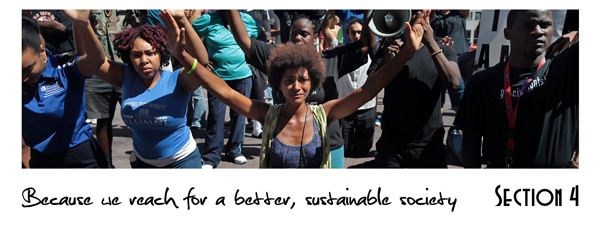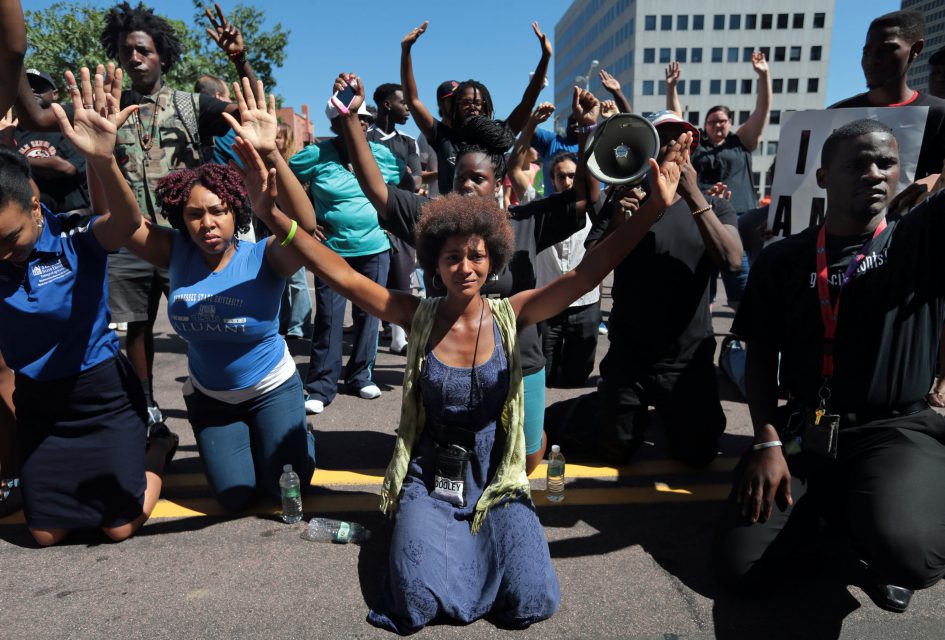a literary journal published by the Black Earth Institute dedicated to re-forging the links between art and spirit, earth and society

Ferguson, Missouri (Ferguson October) is much more than a symbol of resistance to the brutality and militarization of the police and power structure. Ferguson is the struggle for respect and life itself. Individual sacrifice in the face of tear gas and threats of bullets has marked many of the demonstrators. The murder of Michael Brown and others known and unknown call out such sacrifice. While many religious leaders are involved in the demonstrations, the bulk of the participants came out in response to reality of everyday life of African Americans. In the early days immediately after the shooting and in the face of armored cars and automatic weapons the role of personal sacrifice beyond the self was evident. This is the shape of spirit often with no reference to a god, transcendence or the mysteries of nature.

Certainly movements for justice and sustainability grow among those who avoid or even reject any identification but one of secular belief and thinking. Avoiding slipping into even a vague spiritual framework, there may be an insistence on biology, historical materialism, or stands on atheism. Common to secular peoples involved in seeking a better world is a commitment to something greater tthan the self, to something that speaks to the best impulses of humans for the worthiness of all and the chance for all to live fully.
There is a belief that progressive secularism and spirituality have little or nothing in common other than being tactical allies in social and environmental causes. Not only is there an imperative to cooperate and the need for mutual respect and acceptance there are more commonalities than may be seen at first.
McKanan in Prophetic Encounters observes these similarities. “People are drawn to religious communities and radical organizations in order to connect their daily routines to a more transcendent vision of heaven, salvation or a new society. Both religion and radicalism offer individuals powerful new identities—as “children of God” or “class conscious workers” or “New Negroes.” In order to extend this power radicals build organizations—social reform societies, utopian communities, third parties–that have many churchlike qualities. Radicals come together to sing hymns and hear sermons, often gathering on Sunday morning; they articulate their defining beliefs and excommunicate those who dissent; their marches are like pilgrimages and their “line-crossing” in civil disobedience like a ritual of initiation. Radicalism is more like a religion than like mainstream political traditions, which suspend questions of transcendence in order to reconcile competing interests and build electorally viable coalitions.”
In this issue we present voices in a secular language yet united with the other voices in aims and character.
©2026 Black Earth Institute. All rights reserved. | ISSN# 2327-784X | Site Admin